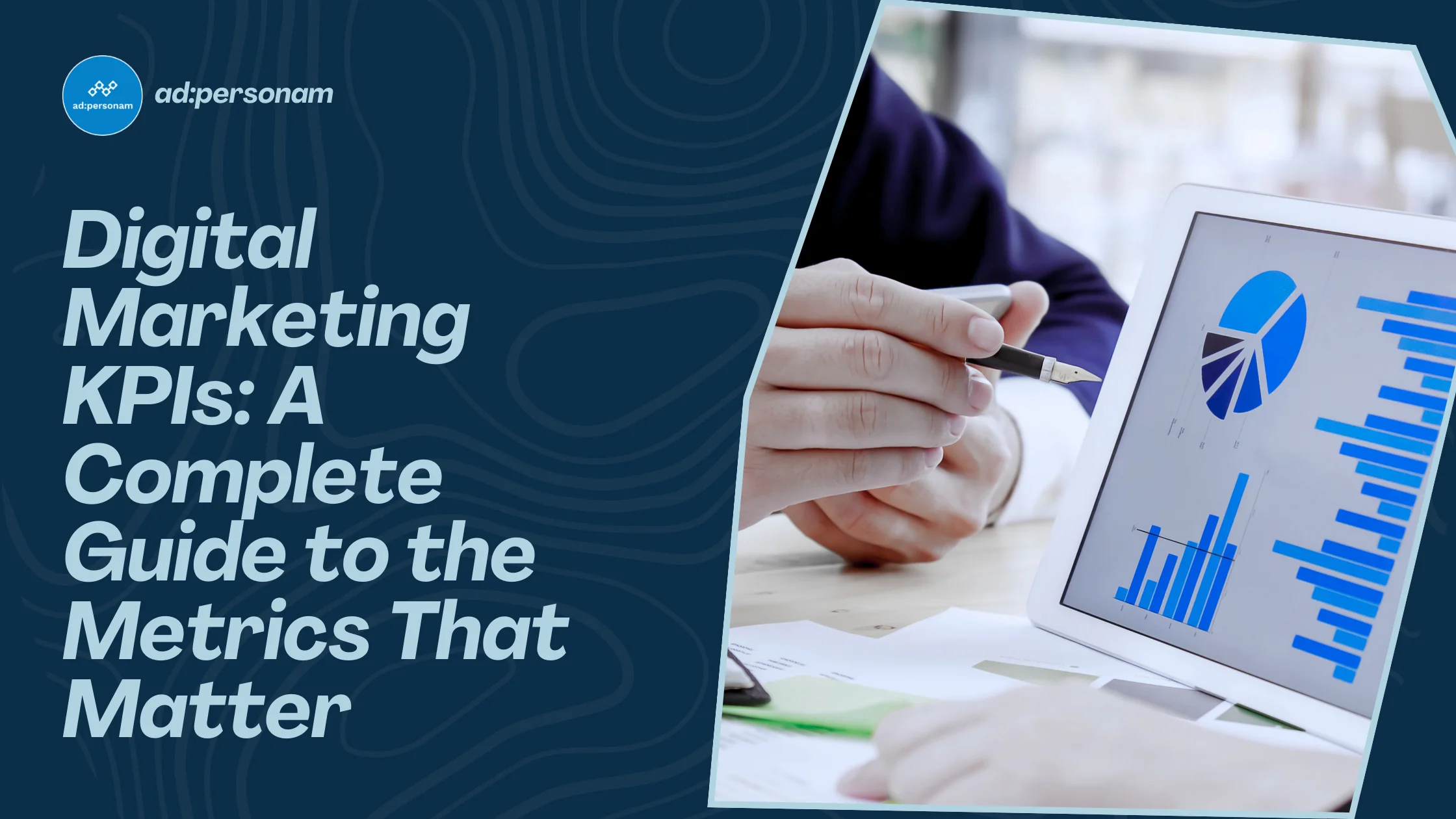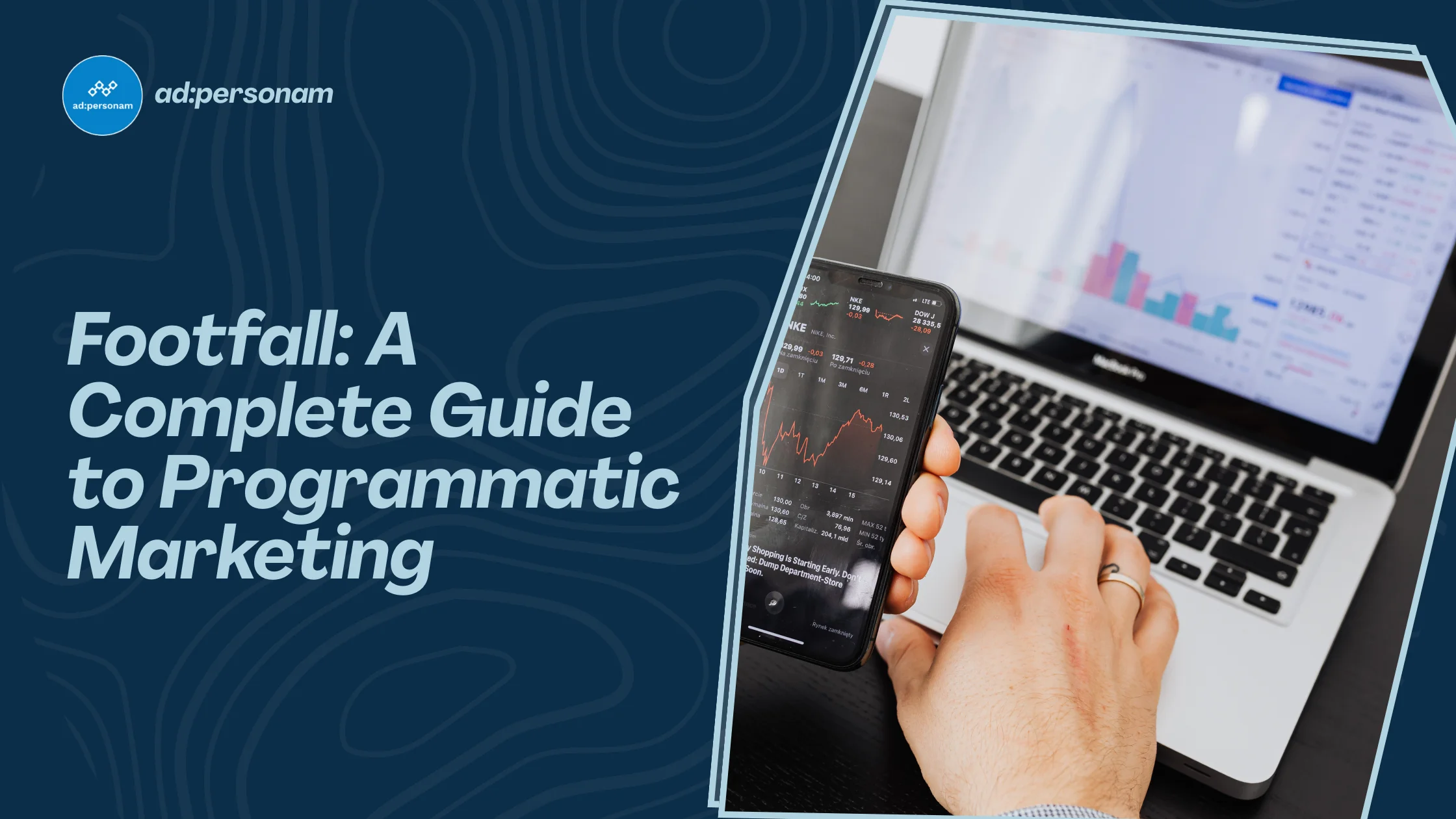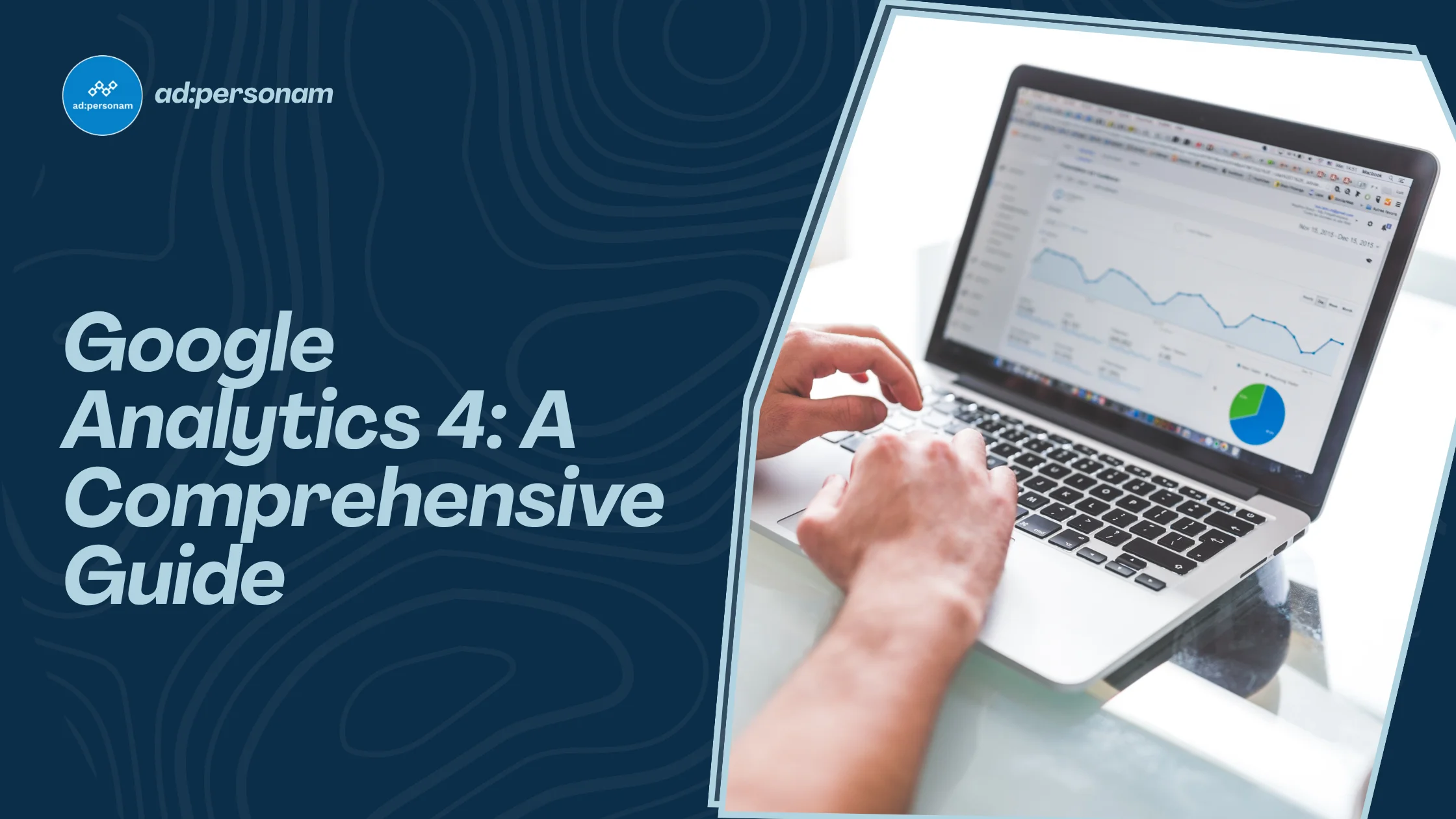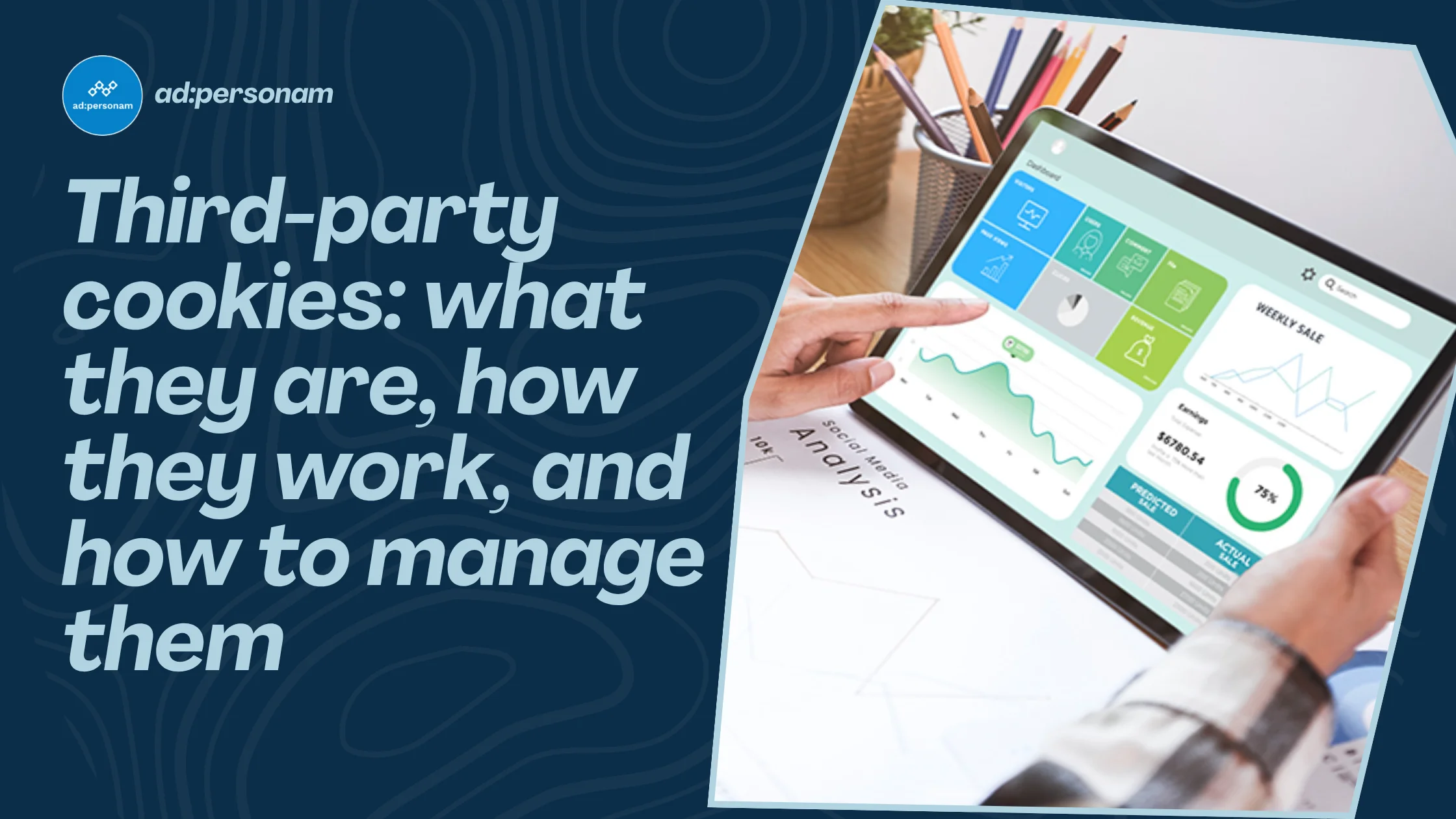Digital Marketing KPIs: A Complete Guide to the Metrics That Matter
Discover the most important digital marketing KPIs and how to track them. Learn how a self-serve DSP like ad:personam helps small businesses and agencies optimize programmatic campaigns with AI.
Contents

When it comes to digital marketing, data isn’t just nice to have—it’s your competitive edge. Whether you’re running a social campaign, optimizing a Google Ads funnel, or investing in programmatic, KPIs (Key Performance Indicators) are the pulse check on whether your strategy is actually working.
In this guide, we’ll break down what KPIs are, why they’re crucial for marketers, and how to choose and track the right ones to drive measurable growth.
What Are Digital Marketing KPIs?
KPIs are quantifiable performance indicators that tell you how effective your marketing activities are. Think of them as your campaign’s “health stats”—numbers that show if you’re hitting the mark.
Some examples include:
- CTR (Click-Through Rate) – Are people engaging with your ads?
- Conversion Rate – Are clicks turning into sales or leads?
- ROI (Return on Investment) – Are your campaigns profitable?
KPIs can be:
- Quantitative, like impressions, leads generated, or sales.
- Qualitative, such as customer satisfaction or lead quality.
The most effective strategies balance both, aligning KPIs with the business goals that matter most.
Why KPIs Are Non-Negotiable in Marketing
Without KPIs, marketing is guesswork. With them, it becomes data-driven decision-making.
- Low conversion rate? Rethink your landing page or CTA.
- High CTR but expensive CPA? Time to optimize targeting.
Real-world impact? A B2B company that tracked CAC (Customer Acquisition Cost), lead quality, and CLV (Customer Lifetime Value) was able to cut acquisition costs by 17%, boost ROI by 29%, and grow leads by 57%—all by monitoring and optimizing the right KPIs.
SMART KPIs: What Makes a Good Metric
A KPI only works if it’s SMART:
- Specific: “Increase contact form submissions by 20% in 3 months.”
- Measurable: Must be trackable with clear data.
- Achievable: Based on realistic business potential.
- Relevant: Directly tied to business objectives.
- Time-bound: Defined within a set timeframe.
“Improve engagement” is vague. “Increase blog engagement by 15% in 90 days” is actionable.
The Essential Digital Marketing KPIs
Here are the metrics every marketer should know:
- CPM (Cost per Mille): The cost per 1,000 ad impressions. Best for brand awareness campaigns.
- CPC (Cost per Click): Average cost per click. Crucial when driving site traffic.
- CPA (Cost per Acquisition): Cost per completed action (e.g., purchase, signup). Ideal for performance campaigns.
- CPV (Cost per View): Cost per video view. Key for storytelling and awareness campaigns.
- CPL (Cost per Lead): Cost per qualified lead. Especially relevant in B2B, education, and services.
How to Track KPIs Effectively
The right tools make all the difference:
- Google Analytics 4 and Looker Studio (for reporting).
- CRM platforms (for customer and lead tracking).
- Social listening tools (for engagement insights).
And if you’re running programmatic campaigns, platforms like ad:personam take this further—offering real-time dashboards, AI-powered recommendations, and automated optimizations to help you reduce CPC, increase CTR, and align KPIs with your goals.
Choosing the Right KPIs for Your Strategy
Here’s a quick framework:
- Define your objectives (awareness, lead generation, sales, retention).
- Map the right channels (social, search, display, email).
- Match metrics to goals (e.g., CPM + CTR for awareness, CPC + CPA for conversions).
- Set SMART targets.
- Establish timelines and review regularly.
Avoid common mistakes like chasing vanity metrics, failing to review KPIs consistently, or tracking numbers that don’t connect to revenue.
Real-World KPI Examples
- B2B Lead Gen: Changing a landing page CTA increased form submissions by 25% while reducing CPL by 18%.
- E-commerce: Product page optimizations boosted conversion rates from 1% to 1.8%, lowering CPA by 30%.
- Professional Services: Combining search (CPC) + display (CPM) lifted awareness and drove higher-quality leads.
FAQ: KPIs in Digital Marketing
Q: What are the 4 main types of KPIs?
- Performance (CTR, CPA, ROI)
- Visibility (impressions, viewability)
- Engagement (bounce rate, time on page)
- Conversion (sign-ups, purchases)
Q: What’s a KPI in marketing? A measurable indicator that shows how well your marketing is achieving business goals.
Q: What KPIs matter most for websites? Unique visitors, bounce rate, time on site, conversion rate, and traffic sources.
🚀 Ready to put KPIs to work? Try the ad:personam Self-Serve DSP and optimize campaigns with AI-driven automation, no minimum spend, and full transparency.
You might also like

Footfall Analysis: Complete Guide to Drive-to-Store Marketing & Location Intelligence
Discover how footfall analytics drives retail success, optimizes campaigns, and powers drive-to-store strategies with location intelligence.

Google Analytics 4: Complete Setup, GDPR Compliance & Migration Guide
Master GA4 with event-based tracking, GDPR compliance, and Universal Analytics migration. Optimize programmatic campaigns with data-driven insights.

Third-Party Cookies: Complete Guide for Digital Marketing
Learn what third-party cookies are, how they work, GDPR compliance requirements, and cookieless alternatives for digital marketing success.